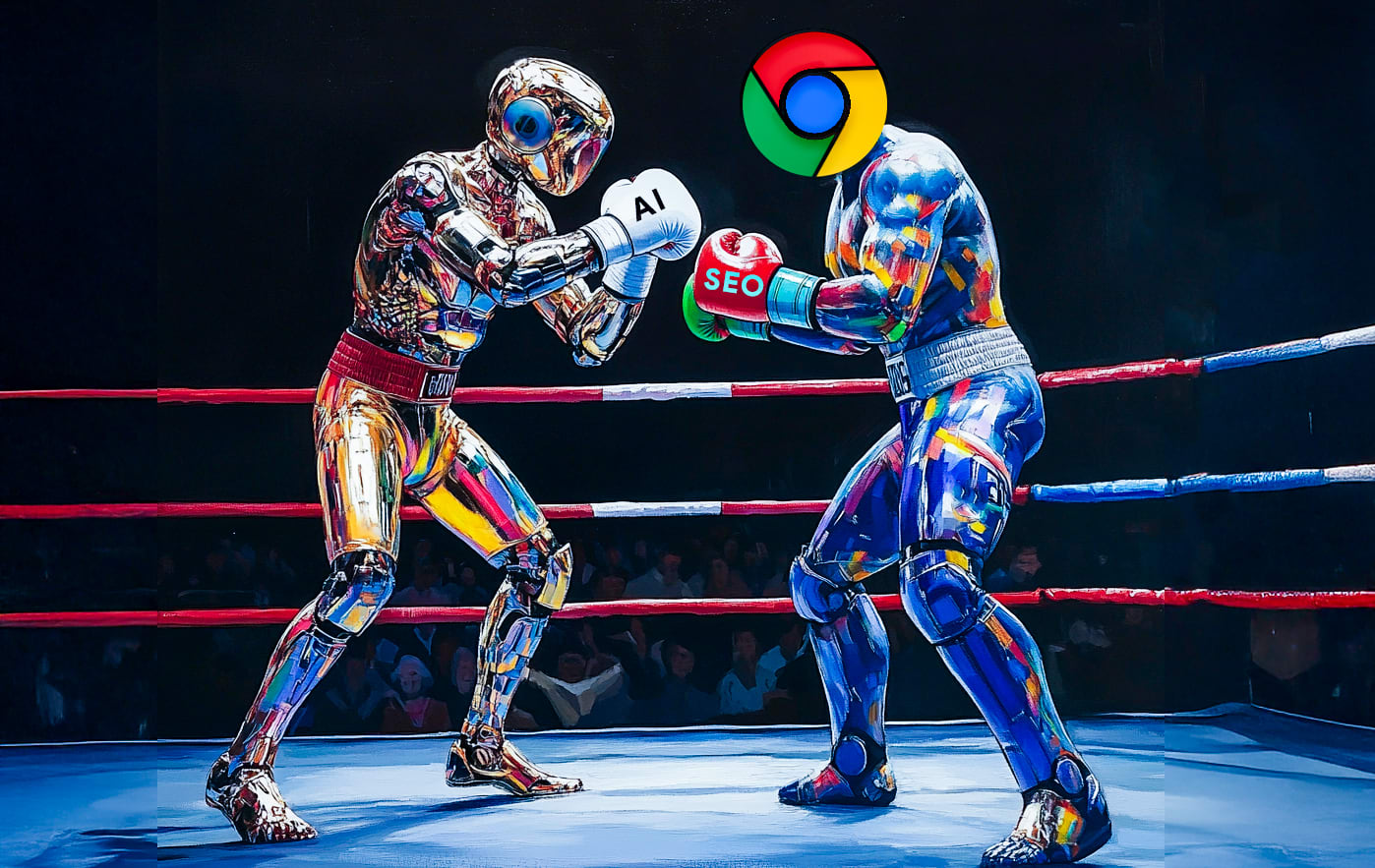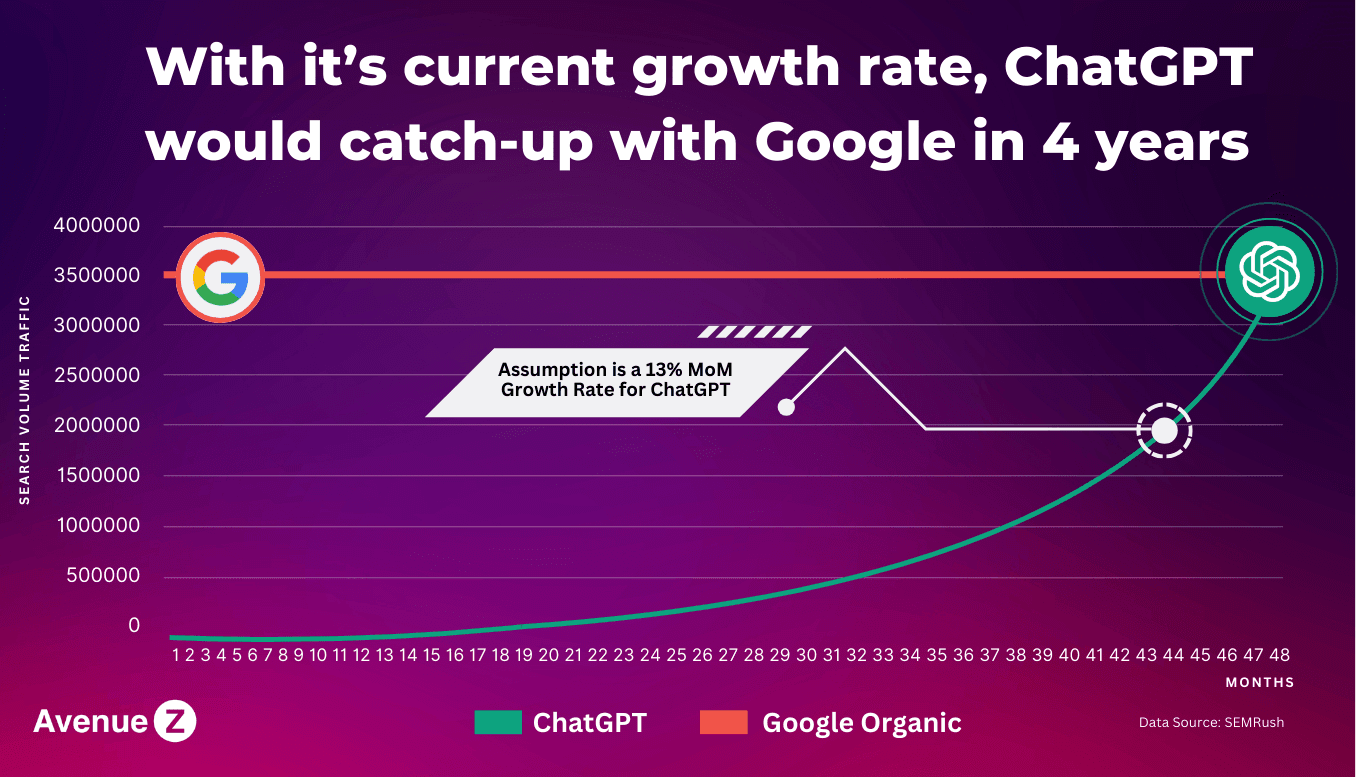Has AI Killed SEO as We Know It?

Has AI Killed SEO as We Know It?

Has AI Killed SEO as We Know It?
Word on the street is that SEO is dead, and artificial intelligence is holding the smoking gun. With more people turning to AI tools like ChatGPT, Gemini, and Claude for answers, some are wondering: Are the days of Googling products and services coming to an end? And if so, does it really matter if your website ranks at the top of search results?
Short answer: Yes. Yes, it does.
Despite it feeling like AI inherently knows everything there is to know, it still relies on search engines to source the information it provides. The biggest shift in the AI era isn’t the death of SEO; it’s a transformation. Instead of optimizing solely for human consumers, businesses now need to optimize for AI agents. If your site isn’t ranking well in traditional search, AI likely won’t surface your business as a recommended answer.
So, how do you make sure your business stays visible in this new landscape? Let’s break it down.
How to Get AI to Notice Your Business
Before we can dive into how AI finds and recommends businesses, it’s important to understand how search engines determine rankings. The truth is, neither Google nor AI platforms have ever published an exact formula for ranking businesses. But thanks to years of real-world experience and experimentation, we have a pretty solid understanding of what works.
At its core, SEO is about making your website easy for search engines to find, understand, and trust. Here’s what that means in practice:
Structure Your Website for Search Engines: Your site should be built with SEO best practices in mind. That means clear headings, well-organized content, and an intuitive structure that both users and search engines can easily navigate.
Optimize for Speed and Performance: Slow websites frustrate users and get penalized by search engines. Optimizing page speed, reducing unnecessary code, and ensuring mobile-friendliness all help boost rankings.
Use Rich Media and Alt Text: Search engines don’t “see” images and videos the way humans do, so adding alt text and structured data helps them understand and rank your content properly.
Earn High-Quality Backlinks: Backlinks from authoritative websites act as trust signals to Google. The more credible sites linking to yours, the stronger your ranking potential.
Create Valuable, Clear, and Readable Content: Your content should be informative, engaging, and easy to read. Clear headings, concise writing, and keyword optimization help both search engines and users quickly grasp what your site is about.
These factors have defined SEO for years and they still do. Even though AI tools don’t directly analyze page speed or backlinks, they do rely on search engines that prioritize these elements. This means if you want AI to recommend your business, you still need to play by Google’s rules.
Now, let’s take a deeper look at how AI pulls data from search engines and why SEO remains a critical piece of the puzzle.
AI Search is rapidly catching up to Google as the primary method consumers find new products and services
How AI Finds and Recommends Businesses
“AI doesn’t replace search engines, it uses them. If you want AI to recognize your business, start by making sure search engines do.”
Now that we’ve covered the fundamentals of SEO, let’s dive into how AI platforms like ChatGPT, Gemini, and Claude actually pull their recommendations. Many people assume that AI operates independently of traditional search engines, but that’s not entirely true. AI’s ability to suggest businesses, products, and services is still heavily influenced by search engines—just in a different way.
Take ChatGPT, for example. If you’re using the default model, its responses are based on training data that cuts off in 2023. That means if your business didn’t have a strong digital presence before then, ChatGPT’s default responses won’t include it. However, if you activate the search function, ChatGPT pulls real-time information directly from the web—often sourcing data from high-ranking search engine results.
Here’s a quick test you can run right now to see this in action:
1. Open ChatGPT and turn on the search feature. Ask it to help you find the type of product or service you offer, as if you were a customer. Pay attention to the businesses it recommends.
2. Now, open an incognito tab and search for the same product or service in Google. Scroll down past the sponsored ads and map listings to look at the top organic search results.
3. Compare the businesses that ChatGPT recommended to the ones ranking at the top of Google. Do you notice a pattern?
Chances are, many of the businesses AI recommends are the same ones that dominate organic search rankings. While wording and phrasing can affect the results, this simple test demonstrates a key point: AI is still leaning on search engines to determine which businesses are worth recommending.
What does this mean for you? It means that SEO isn’t just alive, it’s more important than ever. If you want your business to be recognized by AI, you need to secure your spot in organic search rankings first.
The Big Takeaway
This article wasn’t meant to be a deep dive into the specifics of SEO, that’s a complex topic that could fill an entire series of articles. Instead, our goal was to illustrate the connection between search engines and AI, and to show how SEO still plays a crucial role in making your business discoverable.
Even as AI tools change how people search for products and services, they still rely on search engines to find and recommend businesses. That means the same SEO fundamentals, strong content, technical optimization, and high-quality backlinks, are still just as important today as they were before AI became mainstream.
Want Some Help?
We hope this article has inspired you to take steps toward improving your website’s organic ranking. SEO takes time and effort, but when done right, it can deliver lasting benefits for your business. If this all feels overwhelming or you simply don’t have the time to tackle it yourself, The SMB Strategist is here to help.
Give us a call, and we’ll provide a free SEO audit of your website to uncover opportunities for growth and help you get the visibility you deserve.
You can find more valuable resources to grow your business on our website at DigitalCLT.com
Images




